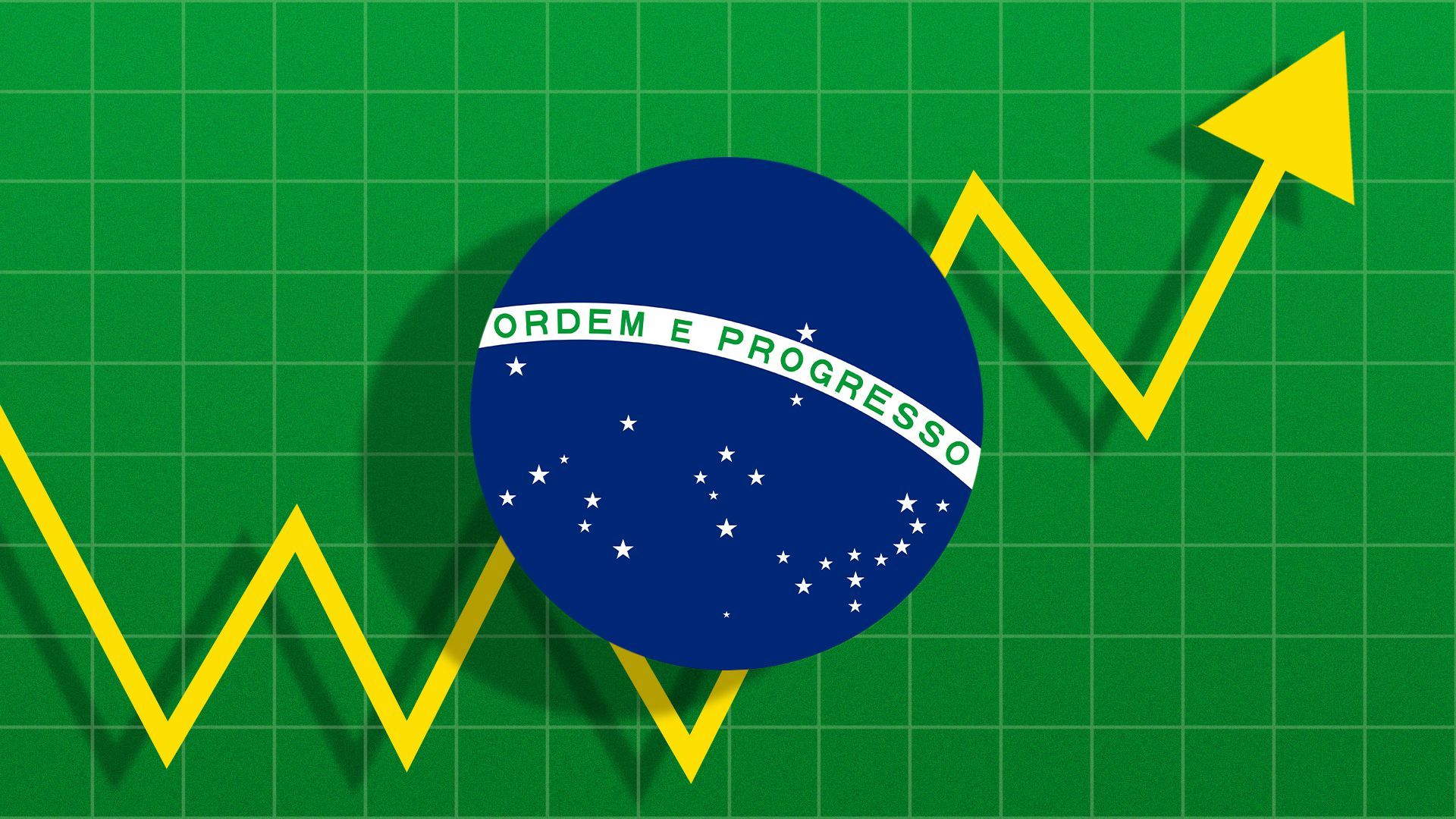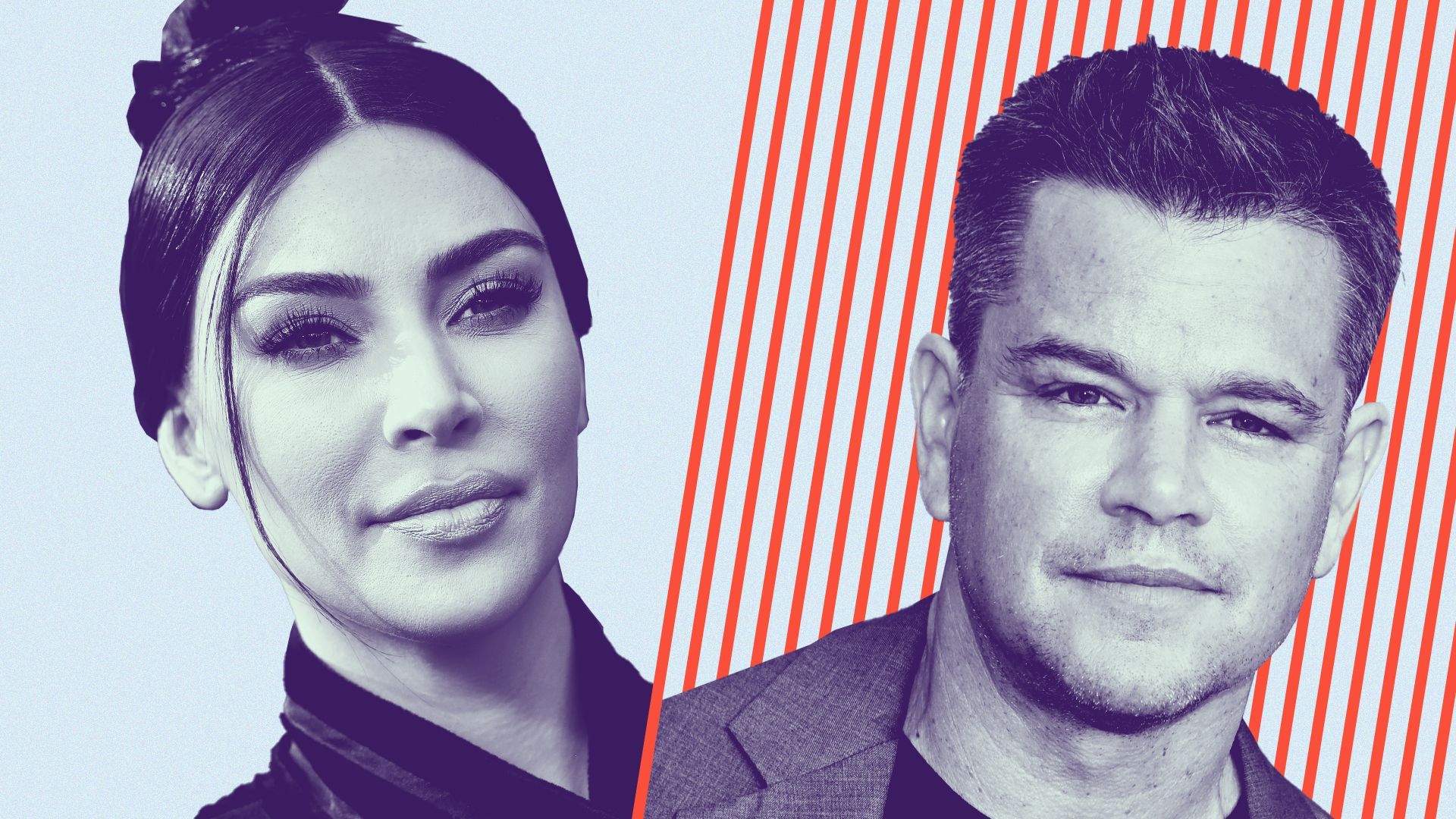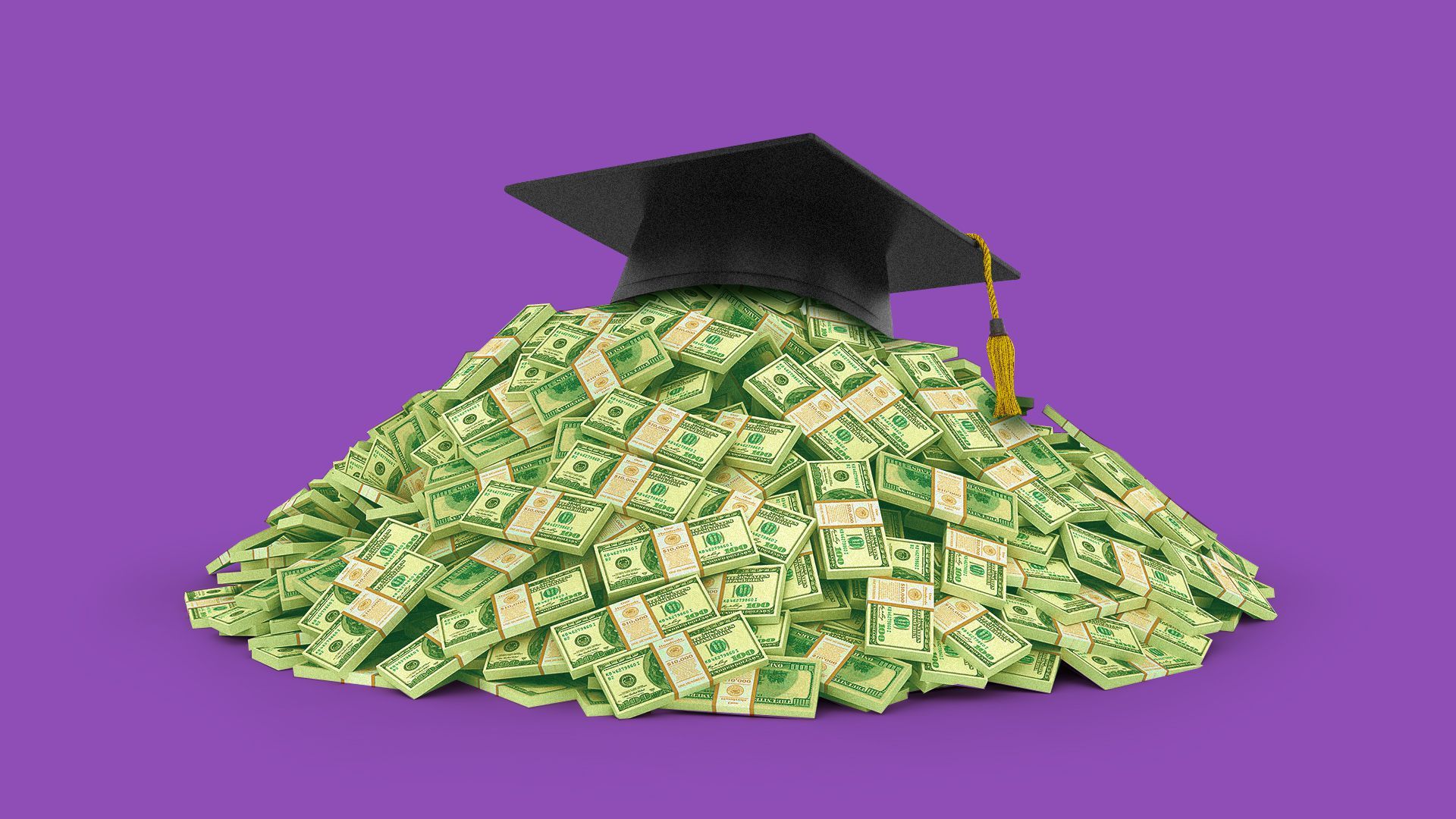| | | | | | | Presented By BlackRock | | | | Axios Markets | | By Matt Phillips and Emily Peck · Oct 04, 2022 | | 'Morning. It's Tuesday, let's dive in. Today's newsletter is 1,229 words, 5 minutes. 🎧 Hear the story of Elon Musk's meteoric rise — and why it matters for us all if he takes over Twitter — on the newest season of Axios' podcast, "How it Happened: Elon Musk vs. Twitter." | | | | | | 1 big thing: Brazil's markets get election bump |  | | | Illustration: Annelise Capossela/Axios | | | | A stronger-than-expected showing for Brazil's far-right president, Jair Bolsonaro, in Sunday's presidential vote appeared to buoy Brazilian markets yesterday, Matt writes. Why it matters: A powerhouse producer of commodities such as soybeans, iron ore and petroleum, Brazil has Latin America's largest economy and population. - Its status as the world's fourth-largest democracy, however, has looked increasingly precarious in the run-up to the election.
- Bolsonaro — a former army captain who speaks warmly of the dictatorship that used to run the country — has repeatedly sought to question the legitimacy of the vote, which polls suggested he was likely to lose.
By the numbers: Brazil's benchmark Bovespa stock index jumped over 5%. - Brazil's currency, the real, rose nearly 5% against the dollar.
- The country's bonds rose too, pushing interest rates, which move in the opposite direction of bond prices, down and lowering the country's borrowing costs.
State of play: Bolsonaro's opponent, the leftist former president Luíz Inácio Lula da Silva, who is known as Lula, took 48.4% of the votes in Sunday's election but was unable to settle the contest in one fell swoop — Bolsonaro fared much better than expected, with 43.2% of the vote. - Because neither candidate received an outright majority, a runoff vote will be held on Oct. 30, extending the election season in an increasingly polarized country. Lula is still considered the front-runner.
Between the lines: Analysts think Bolsonaro's better-than-expected showing — some polls showed him trailing by more than a dozen percentage points — could force Lula to moderate some of his opposition to the deregulation and privatization programs Bolsonaro had pushed. - Brazilian utility giant Eletrobras — which was majority-owned by the government but privatized in June — was one of the best-performing stocks in Brazilian markets yesterday.
What they're saying: "Investors may have taken heart from the fact that even before Sunday's results, Lula seemed to be tacking toward the center," wrote Capital Economics analysts in a research note yesterday. Worth noting: The performance of Brazil's markets was also influenced by news that OPEC+ was considering a large production cut for crude. - The news drove oil prices sharply higher and lifted shares of Brazilian oil giant Petrobras by more than 13%.
What we're watching: Any indication that election-related violence could be next. That would, among other things, spook the markets. |     | | | | | | 2. Catch up quick | | 📈 Reserve Bank of Australia surprises with a quarter-point rate hike. (Bloomberg) 💹 UN calls for an end to global rate hikes. (WSJ) 🇨🇳 U.S. to announce new limits on chip technology exports to China. (Bloomberg) 🕳️ How big is the capital hole at Credit Suisse? (FT) |     | | | | | | 3. Why Kim Kardashian got fined and Matt Damon didn't |  | | | Photo illustration: Annelise Capossela/Axios. Photos: Axelle/Bauer-Griffin/FilmMagic, Daniele Venturelli/WireImage via Getty Images | | | | Kim Kardashian was fined $1.26 million yesterday for touting crypto schemes — even as much more high-profile pitches from the likes of Matt Damon and Larry David have gone unpunished. The seeming double standard is a function of a subtle yet crucial distinction in securities law, Axios' Felix Salmon writes. Why it matters: Celebrity crypto endorsements drew millions of Americans into the crypto market at the beginning of this year, just before prices cratered. - The TV ads, which cost up to $6 million each, aired thousands of times and reached millions of viewers. Almost everybody who bought crypto at those levels ended up losing money.
- A single post on Kardashian's Instagram page, by contrast, for a coin almost no one had heard of, might have caused losses for anybody who bought that coin after seeing the ad. But the number of such people — and the total aggregate losses — were tiny in comparison to the industrial-scale ad campaigns from the big crypto platforms.
Between the lines: Legally speaking, it's fine for celebrities and influencers to endorse investment opportunities, including crypto investments. Where Kardashian crossed the line was when she endorsed a crypto asset security. - The height of the crypto advertising boom was the 2022 Super Bowl, where companies like FTX and Crypto.com spent untold millions touting their websites as a place to buy crypto — and, implicitly, to get rich doing so.
- Kardashian's relatively low-budget 2021 Instagram post, by contrast — she was paid just $250,000 for it — touted a specific coin, EthereumMax, that the SEC has determined qualifies as a security. That brings it under SEC jurisdiction, which is much stricter than the FTC regulations governing most advertising.
How it works: If you're endorsing a company, the only rules that apply are the relatively lax ones from the FTC. - If you're shilling a security, then disclosing that you were paid — as Kardashian did with an #AD hashtag — is not enough; you also need to disclose how much you were paid.
The bottom line: If you're going to tout crypto, tout a crypto company, not a coin. Go deeper. |     | | | | | | A message from BlackRock | | Invested in the future of retirees | | |  | | | | All across the country, people are working hard to build a better future. So, we are hard at work, helping them achieve financial freedom. At BlackRock, we are proud to manage the retirement plan assets of over 35 million Americans. Learn more. | | | | | | 4. Princeton isn't free — but it could be |  | | | Illustration: Aïda Amer/Axios | | | | Princeton University is so rich it has become a perpetual motion machine — an institution that can operate with no outside financial support whatsoever. That's the claim made by Malcolm Gladwell, in a recent newsletter, and opposed by Harvard economics professor John Campbell, in a letter to The Browser, Felix writes. The big picture: Gladwell is broadly correct. Campbell's quibbles might change the exact numbers, but Princeton really does seem to have reached the point at which it's capable of funding itself in perpetuity, even without research grants or tuition income. Why it matters: A handful of ultra-rich universities increasingly resemble hedge funds with a nonprofit educational arm attached. - Critics like Gladwell say that endowments have become so huge that Princeton and its ilk no longer need to beg for money from alumni; that such donations would almost certainly be better spent at almost any other nonprofit; and that even charging tuition seems unnecessary at this point.
State of play: Princeton's endowment hit $37.7 billion in 2021, or $4.5 million per student. The school's entire annual operating expense that year was $1.86 billion, which is less than 5% of the value of the endowment. - The endowment will probably decline in value in 2022; such are the markets. But over the long term, it's reasonable to expect the endowment to continue to grow more quickly than the university's expenses.
- On top of that, Princeton continues to be very good at persuading its alumni to continue to donate generously to the fund.
Worth noting: Princeton made an astonishing 46.9% investment return in 2021 — a number most hedge funds would covet. Andy Golden, the president of Princo, the university's money-management arm, made $7.2 million last year, vastly more than the $1.1 million earned by Christopher Eisgruber, the university president. - Unlike most hedge funds, however, Princeton — a tax-exempt nonprofit — pays only a small 1.4% excise tax on its investment returns. It has lobbied hard against paying even that much.
Go deeper. |     | | |  | | | | If you like this newsletter, your friends may, too! Refer your friends and get free Axios swag when they sign up. | | | | | | | | 5. OPEC+ already moved oil up |  Data: FactSet; Chart: Axios Visuals Oil prices moved sharply upward yesterday after reports that OPEC+ could announce a significant output cut when the coalition meets in Vienna tomorrow, Axios Generate author Ben Geman writes. - U.S. benchmark WTI crude futures climbed by over $3 per barrel, topping $83.
The big picture: The latest market lurch comes after prices had been largely dropping for months — to lows not seen since January — amid bearish economic signals. - The upcoming decision by OPEC+ could potentially push crude prices — and hence gasoline prices — back upward.
|     | | | | | | A message from BlackRock | | Invested in the future of communities | | |  | | | | At BlackRock, we are serving the communities that help the country thrive. We are proud to invest in the projects that build our economy, with $20 billion in U.S. roads, bridges and transportation invested on behalf of our clients. Learn more. | | | | Today's newsletter was edited by Kate Marino and copy edited by Mickey Meece. |  | | Why stop here? Let's go Pro. | | | | | | Axios thanks our partners for supporting our newsletters. If you're interested in advertising, learn more here.
Sponsorship has no influence on editorial content. Axios, 3100 Clarendon Blvd, Arlington VA 22201 | | | You received this email because you signed up for newsletters from Axios.
Change your preferences or unsubscribe here. | | | Was this email forwarded to you?
Sign up now to get Axios in your inbox. | | | | Follow Axios on social media:    | | | | | |












No comments:
Post a Comment